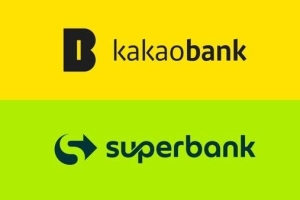Asia Banking Research
South Korea’s three digibanks have been unusually successful given the high rate of failure, or at least underperformance, in this segment of financial services. The reasons for their success are many, from innovative business models to the weak digital offerings of incumbents, but support from regulators has also been crucial. We will now find out just how much confidence regulators have in these upstarts as they face rising delinquency rates that are a natural result of their focus on non-top tier borrowers.
Kakao steps up its presence in Southeast Asia
Having built one of the only successful super apps outside of China, with both a thriving digital bank and payments platform, Kakao has decided it is time to expand overseas. Its first foreign market is Thailand, where it is partnering with Siam Commercial Bank (SCB). Next up is Indonesia, where Kakao is partnering with a couple of heavyweight companies on a digital banking venture.
Digital banks gradually go live in Malaysia
In April, The Ken reported that one of the reasons Malaysia’s digital banks have been slow to launch is that they have had trouble finding the right people to run the new businesses. Apparently, finding talent with the right mix of technological acumen and understanding of the banking business is not so easy in Malaysia – perhaps because the country has been less of a hub for tech startups than some other countries in Southeast Asia. Nevertheless, in early September, Grab’s GXBank-Berhad became the first of Malaysia’s online banks to launch.
Why Singapore is facing more financial crime challenges
As the massive money laundering case involving 10 people of Chinese descent continues to unfold in Singapore, we wonder if this might just be the third act in a multi-part perfect storm that also involve Three Arrows Capital and some other shady operations. In a nutshell, Singapore, with perhaps the exception of its relatively quiet capital markets, has come into its own as a financial hub in recent years, attracting unprecedented sums from venture capitalists, a huge amount of attention and investment from the crypto community, and a massive influx of Chinese capital that has translated into a broader family office and wealth management boom. With so much money moving into and through the city-state, financial crime risks multiply and authorities have to be more proactive than in the past.
Versa aims to disrupt wealth management in Malaysia
Versa is aiming to disrupt the Malaysian wealth management market with its all-digital platform, which has benefited from ample investor interest and funding, as well as rapid customer acquisition. In 2022, Versa’s gross transaction volume doubled year on year, and the company aims to sustain this pace of growth until 2026.
Greenland Financial Holdings has always been an unusual candidate for operating a digital bank in Singapore. The company is in essence a large state-owned real estate developer based in Shanghai. Compared to tech and telecoms giants that won the other licenses in the city-state, Greenland is less market oriented. It’s more like a real estate arm of the Chinese government. Given the trouble that China’s property sector has been experiencing, as well as a recent bond default, it is worth pondering if Greenland’s digital bank in Singapore could be affected.
Reevaluating the prospects of Trust Bank
It’s always good to revisit assumptions, especially when the bank you are analyzing is an offshoot of an incumbent as large as Standard Chartered. When we initially heard that there was a new kid on the block among the digital banks in Singapore – but not altogether “new” – we were skeptical because the value proposition was anchored in, well, groceries. It’s just not the first thing that comes to mind when one thinks about how to build a successful lender. That said, the ecosystem play by Standard Chartered and Fair Price Group appears to be bearing fruit (no pun intended).
South Korean digibanks expand into new market segments
South Korea’s digital banks have been among the most successful online lenders in East Asia, benefiting from the network effect of their respective digital services platforms, relatively weak incumbent digital offerings and strong demand from the country’s retail banking market for new types of products. Yet as they expand into new market segments, in some cases rapidly, regulators are bound to take notice. This holds especially true for the mortgage loan segment.
Japanese megabanks double down on global expansion
In recent years, Japan’s largest banks have expanded rapidly in emerging Southeast Asia, from Indonesia to Thailand to Vietnam, as well as India. At the same time, they are making strategic investments in advanced economies such as the United States and Israel. With growth prospects at home facing constraints, from the aging population to the fact that the Japanese population is well banked, this search for growth overseas looks set to continue for some time.
Fintech is paying off for SCB
Thailand’s Siam Commercial Bank (SCB) is among the most fintech-forward commercial banks in Asia. What makes SCB's digital finance strategy successful is that it leverages all the advantages of incumbency while using technology to develop products for the digital age.
More...
How UnionDigital Bank achieved profitability quickly
When a digital bank reaches profitability quickly, as in positive net income, it is always worth exploring in detail. After all, it is the exception, not the rule. In the case of the Philippines’ UnionDigital Bank, there is more to the story than meets the eye.
Most of the time when we write about Singapore’s rise as a wealth management hub, the news is overwhelmingly positive. But every so often, the risks inherent to taking on that role become glaringly apparent. Singapore is no stranger to money laundering risks, especially after several banks in the city-state were involved with the 1MDB mega scandal. However, in the S$1 billion money laundering investigation Singapore is currently undertaking, it seems the city-state is the center of the alleged crimes rather than Malaysia or another country.
Is Maya the best digibank in Southeast Asia?
Is the Philippines’ Maya Bank the best digital lender in Southeast Asia? The Digital Banker certainly thinks so. On a recent top 10 list compiled by that publication, Maya was the only Southeast Asian digibanks and No. 8 overall alongside digibanks such as Starling, Revolut, WeBank, MOX Bank and Kakao Bank.
GoTo may not have an obvious path to profitability
It’s earnings season and Southeast Asia’s platform companies are trying once again to convince investors that they are on the path to profitability. The jury is still out as far as we’re concerned, especially in the case of any company that started out in the business of ride hailing and until recently emphasized growth at all costs. Having lost 75% of its market valuation since going public a little over a year ago, SoftBank and GIC-backed GoTo has yet to convince investors that it has turned a corner on the path to profitability, and we see little in its second-quarter earnings results that suggest anything has fundamentally changed for the better.














